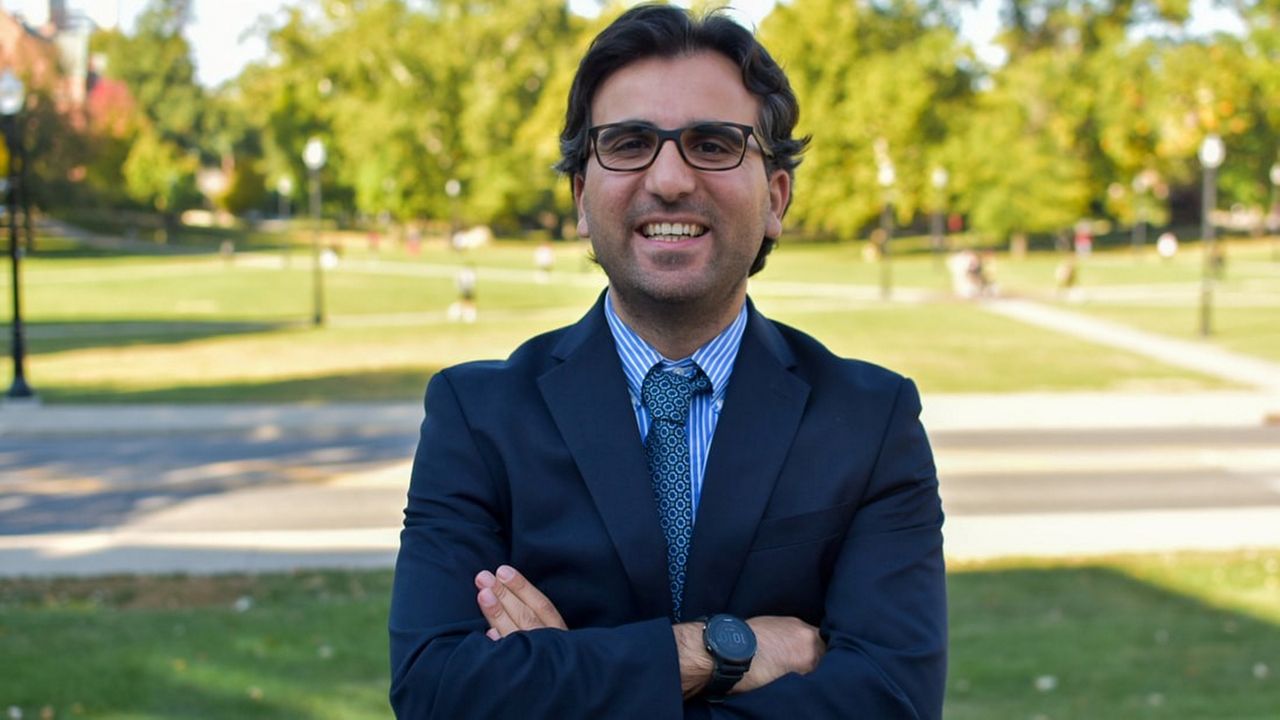A Rochester college professor who is an expert in expert in Middle Eastern politics and refugees is responding to the sudden collapse of the Syrian government under Bashar Assad. The news is bringing celebration for many throughout Syria and beyond.
"I was really happy to hear that this recent offensive has resulted in a regime change in Syria," said Sefa Secen, assistant professor of political science at Nazareth University. "There has been a civil war in Syria over the last 13 years — a bloody, brutal war which has resulted in the deaths of hundreds of thousands of people and the displacement of millions of people."
Assad became the unlikely president of Syria in 2000 when many hoped he would be a young reformer after three decades of his father’s iron grip. But in 2011, when faced with protests of his rule, Assad turned to the brutal tactics of his father to crush dissent. As the uprising hemorrhaged into an outright civil war, he unleashed his military to blast opposition-held cities, with support from allies Iran and Russia.
The geopolitical tide turned quickly when opposition groups in northwest Syria in late November launched a surprise offensive. Government forces quickly collapsed while Assad’s allies, preoccupied by other conflicts — Russia’s war in Ukraine and the yearlong wars between Israel and the Iran-backed militant groups Hezbollah and Hamas — appeared reluctant to forcefully intervene.
"So Iranians and Hezbollah, another key ally of the Assad regime, they were also involved in their own conflicts and Israeli airstrikes have really weakened them. The opposition factions in Syria saw this as a historic opportunity and seized the moment and launched this latest offensive," said Secen. "My people were expecting that maybe the opposition factions could capture Aleppo, like, you know, one city, but they captured one city after another and finally captured Damascus and toppled the regime."
The jihadi rebels who toppled Syrian President Bashar Assad say they want to build a unified, inclusive country. But after 14 years of civil war, putting that ideal into practice will not be easy.
For Syria’s Kurdish minority, America’s closest ally in the country, the struggle for a new order is entering a potentially even more challenging phase.
The jihadi rebels who rode into Damascus over the weekend have made peaceful overtures to the Kurds. But the rebels violently drove Kurdish fighters out of the eastern city of Deir al-Zour days after government forces abandoned it.
To the north, a separate opposition faction backed by Turkey that has been battling the Kurds for years seized the town of Manbij. And Turkey carried out airstrikes on a Kurdish convoy it said was carrying heavy weapons looted from government arsenals.
"All of these factions, they have different interests and they have different external patrons, so to speak, right? They have different external backers. So their objectives differ but all of them aim to topple the regime in the first place," said Secen.
The rebels could still seek some kind of agreement with the Kurds to incorporate them into the post-Assad political order, but that would likely require accepting a degree of Kurdish autonomy in the east. It would also risk angering Turkey, which now appears to be the chief power broker in Syria.
The Associated Press contributed to this report.



